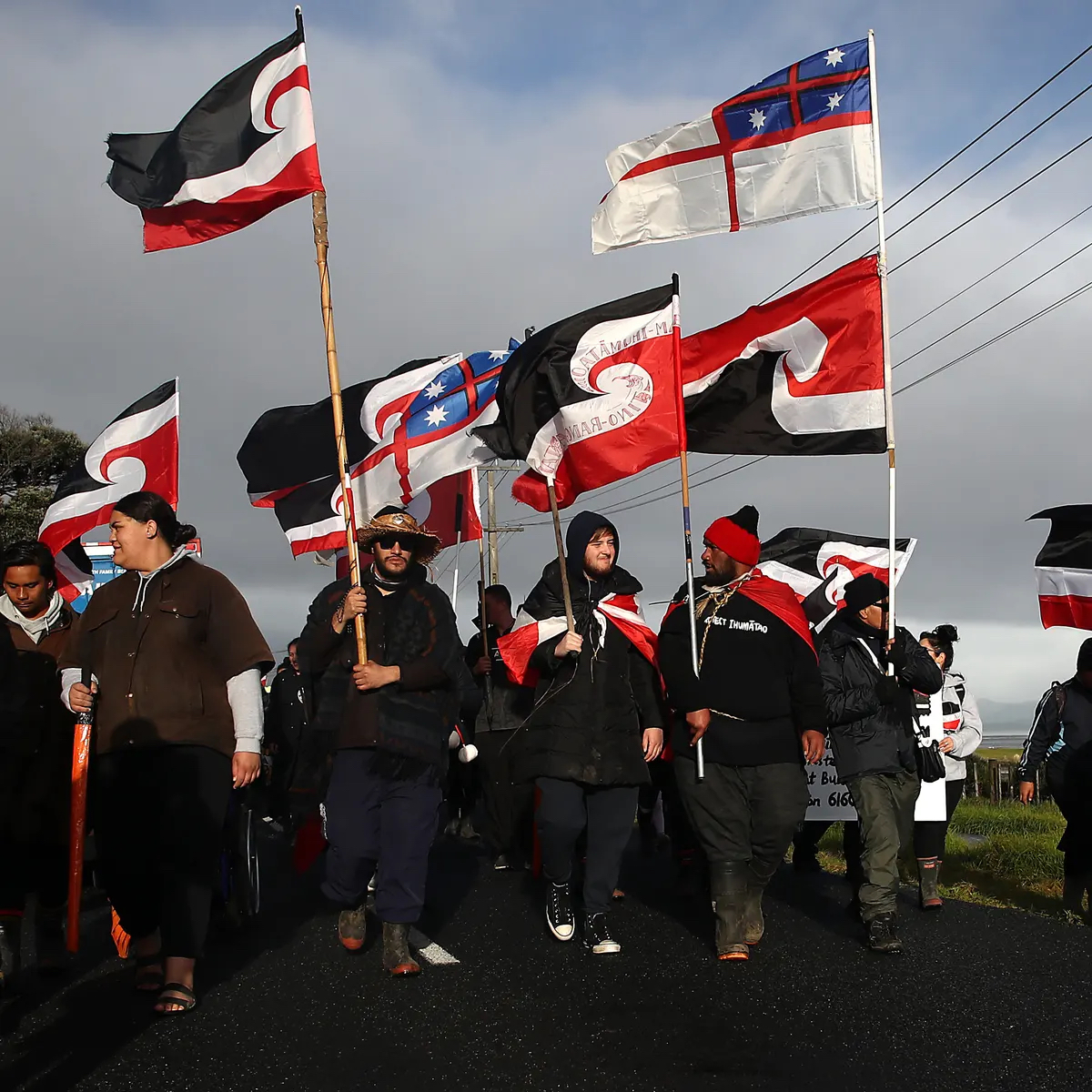In 2001, Alison Jones published a paper called ‘Cross-Cultural Pedagogy and the Passion for Ignorance’ about Māori-Pākehā relations in education in Aotearoa New Zealand. The memorable phrase ‘passion for ignorance’ is attributed to French psychoanalyst Jacques Lacan, who described how people ignore what is inconvenient or traumatic. In English, this phrase owes its power to the disjunction between these two strong nouns, ‘passion’ and ‘ignorance,’ since ignorance is a surprising object of passion. Today, the word ‘passion’ is overused – often meaning something like ‘favourite activity’ – but it still has melodramatic and religious overtones and is unusual in academic prose. ‘Ignorance’ is a strong anti-value in the contemporary global culture in the sense of being a public enemy, something everyone is trained to disdain and fight against. What, then, could it mean to be ‘passionate’ about ignorance? The concept of a passion for ignorance is a provocation for educators and others interested in teaching and learning, who are presumed to be passionately against ignorance.
Jones used the term’ passion for ignorance’ in discussing the difficulties of teaching across cultural difference and the negative reactions of some Pākehā students to having Māori and Pacific lecturers teach a university class on feminism, despite their expressed desire to learn about ‘other’ cultures. The Pākehā students recorded the ‘sense of alienation and anger they felt when they were required to listen to, or participate in, activities initiated by their Māori or Tongan lecturers.’ Resistance by White students to being taught by non-White lecturers is amply recorded in literature from Canada and the US, a resistance sometimes explained as refusing to transgress cultural boundaries, preferring to stay on familiar ground. Jones disagrees with this explanation, suggesting that such students ‘do not simply refuse to transgress boundaries; rather they refuse boundaries,’ meaning they refuse to accept the possibility of any limits to their/Western knowledge. Such resistance from Western students is understandable, since it aligns with the Hegelian belief in ‘the knowability of things’ that underpins dominant Western traditions of knowledge, pedagogy and education, in schooling and the university. Pedagogy in the university, which is Western in origin, is based on an attitude of possibility and entitlement to knowledge, conceived as an ‘open’ epistemological terrain.
Indeed, the idea of the not-known is usually understood in terms of the still-to-be-known or the potentially-knowable – a notion that has radically underpinned the historical impetus of exploration and colonisation. Within this traditional frame, a sense of possibility – of ‘knowing everything’ – although never achieved or achievable – is the implicit pedagogical ideal.
These comments apply to school policies in Aotearoa New Zealand, where new professional standards require ALL teachers to know and teach Māori knowledge and language. National policies reflect dominant Western (Hegelian) epistemologies, based on which it is assumed that these new requirements for teachers can be met simply by providing the ‘missing’ teacher knowledge of things Māori through in-service courses and the like; initial teacher education will be expected to prepare future teachers much more adequately for teaching Māori knowledge and language.
But Jones digs into the ‘inevitable and disturbing moment’ for many Pākehā, herself included, when a Māori teacher speaks, describing the sense of ‘encounter [with] something frightening’ that she discerns comes from ’a fleeting, slippery glimpse of (the possibility of) an “unknowable”’ that is usually suppressed in Western knowledge traditions. ‘What we sense is not so much that we do not know something [but] rather, we encounter an end to the blissful assumption that we could know everything.’
It is helpful to unpack this disjunction in terms of the handful of colonising ‘truth-myths’ relied on by the British in creating New Zealand in Aotearoa, about which I have written elsewhere. One of these ideologies holds that Māori knowledge is vastly inferior to European knowledge; this idea implies that there could exist no Māori concepts that do not also exist within European knowledge. This kind of reasoning, safely buried below the surface of social and academic discourses, sustains the resistance of the ignorant White attitudes on display in education and other public domains.
Leaving aside the cross-cultural complications, Jones discusses the impossibility of teaching at all, stemming from ‘Freud’s claim that teaching is one of those “impossible” professions in which one can be sure beforehand of achieving unsatisfying results.’ All teaching is inevitably unsatisfactory if it is based in a ‘pedagogical fantasy’ of reliable, measurable gains in what students know. Rather, teaching and learning are inherently ‘uncomfortable, unruly and non-rational’ processes, since ‘ignorance and uncertainty are an inevitable aspect of human knowing.’ Teaching must confront ignorance as more than lack of knowledge; rather, as a performative resistance to knowledge. Teaching, therefore, can never be a simple matter of giving students information or helping them to understand; such a superficial notion of teaching amounts to ‘an impossible fantasy of mastery.’
Applying these insights to cross-cultural teaching and learning scenarios, where uncomfortable influences are at play, including ‘guilt, history, fear, defensiveness, and hope,’ Jones poses some tricky questions to herself and other Pākehā people:
Is it that we Pākehā in cross-cultural educational settings (unconsciously and consciously) refuse to know our implication in cultural difference? Do we have a cultural incapacity to recognise that we assume we can know (everything)?
A passion for ignorance in Māori-Pākehā educational relationships therefore refers, not simply to a Pākehā/White person’s ‘lack of knowledge’ i.e. ignorance about non-Western cultures, but to the denial of that ignorance, with the assumption that all Pākehā/White teachers need are Māori courses to provide the missing knowledge and skills. In the absence of a deeper understanding of the role of ignorance in knowledge and learning, the enthusiasm of the Pākehā/White teacher or teacher educator for embracing things Māori becomes yet another instance of philosophical colonisation and symbolic violence.
In the two decades since Jones’s important article was published, scholarly interest in ignorance has exploded, though its relevance to teaching and learning has not yet entered mainstream educational thought. The consensus holds that the vast increase in the knowledge available to humans today is inevitably accompanied by a concomitant increase in ignorance – an idea that seems to ring true for things like conspiracy theories spread through social media. The word ‘agnotology’ was coined in 1992 by Iain Boal and Robert Proctor in Agnotology: The Making and Unmaking of Ignorance (2008) to mean the study of ignorance and its cultural production, using the negating prefix ‘a’ before the root ‘gno’ meaning ‘to know.’ Proctor posits agnotology as a ‘missing term’ and pair for epistemology: ignorance is to agnotology as knowledge is to epistemology.
How seriously can we take the claim of agnotology effectively to invent a whole new field of philosophical inquiry? In support of his claim for agnotology, Proctor provisionally delineates a three-part typology of ignorance: as native state (or resource); as lost realm (selective choice or passive construct); and as a deliberately engineered, strategic ploy (active construct).
The first type, ignorance as native state, is characterised as an absence or deficit of knowledge, which could reasonably be assumed to fall within the ‘normal’ territory of epistemology – except that “mainstream epistemology has itself been part of the problem rather than part of the solution, generating its own distinct ignorances.” The conceptual coherence of ‘agnotology’ thus depends on accepting the politicised, historicised, non-neutral nature of Western philosophy, including epistemology, and the implications. The argument can be sketched as follows: the pseudo-concept of ‘race’ was an invention of the modern period; ‘race’ plays a fundamental role in structuring modernity and the modern academic disciplines, including disciplinary philosophy; Western or mainstream philosophy is therefore, by definition, ‘White’ philosophy.
Proctor’s second and third types of ignorance – the passive and active forms of politically-motivated ‘not-knowing’ – build on from the colonising implications of seeing ignorance as ‘the mother who must die for science to be born’ (a ‘brutal’ patriarchal metaphor attributed to Johannes Kepler). Proctor points out the inherently colonising nature of typical Western metaphors for knowledge and ignorance: ‘Light floods the darkness, keys are found to unlock locks, ignorance is washed away, teaching uplifts out of ignorance, which is thereby destroyed or chased, and so forth.’
Agnotology, on this reasoning, is a radical critique of the Whiteness of epistemology, which explains why the concept appeared so recently, in the post-disciplinary era, at a point in time when, as Henry Giroux argues, ‘truth’ was becoming increasingly politicised, destabilised, commodified, and weaponised. The emergence of post-modernism, post-structuralism and the other ‘posts’ is partly a response to the exposure of the Whiteness of epistemology: agnotology is born of the posts.
The claims of epistemology are prey to agnotology in the form of White Ignorance to the extent that mainstream philosophy is claimed to be a bastion of ‘objective rationality’ that underwrites the entire contemporary academy. The problem seems to be the claim philosophy makes to the laws of logic, which are universal in the natural world and human cognition, but utterly dependent on meta-theories, which have invariably been Eurocentric/White, for being elaborated and applied in domains centred on practice, such as education Whiteness is woven into dominant thought through the enormously complex relationships between the basic laws of logic+science, and their application to human society through fields such as education.
Can Pākehā/White teachers recognise the implicitly politicised basis of the knowledge we teach in school? Can they embrace the discomfort of being confronted by cultural difference and their own implications in our national racialised histories? These challenges cannot be met by learning some bits and pieces of Māori language and knowledge, yet so far, the policy and most of those in the sector seem blissfully ignorant of the limitations of these current approaches.
Jones uses her insights to show why ‘cross-cultural dialogue’ cannot achieve the ideal of biculturalism as racial harmony between Māori and Pākehā in Aotearoa New Zealand, despite the general belief to the contrary. Critical educators are those who hold most stock in this ‘blissful’ outcome of classroom dialogue between students and teachers from different cultural backgrounds, and its ‘liberal teleology: in knowing each other and thus recognising our differences as well as our universally shared humanity, we will live more peacefully together.’
I recognise myself in Jones’s description of her Māori and Pacific colleagues as refusing to perform this blithe script of cross-cultural dialogue and pedagogy; of failing to enable the White fantasy that desires’ unity-through-knowing,’ shared by many teachers and students, and reflected in national policies for Māori and Pacific education. In my own performance of my role as a university teacher, I resist the notion that teaching Māori students successfully is a simple matter of learning and applying ‘culturally responsive pedagogies.’ Reading myself into Jones, I see that I take it upon myself to speak as an ‘authoritative harbinge[r] of the unknowable, of uncertainty, [and with] a certain anger about colonisation.’ As a Kaupapa Māori scholar in a ‘mainstream’ School of Education, I hold a paradoxical, doubled position, both expert in, and critic of, Māori education policies. Looking through the lens of agnotology and the passion for ignorance clarifies why my efforts to teach about the gaps between Māori and Pākehā views provoke negative reactions from some students and colleagues. If I were to protect Pākehā from their own ignorance, I would also protect myself from their negative reactions. But that choice would come at the cost of my sense of personal ethics and responsibility as a Māori scholar, and that is a price too high to be ignored.




